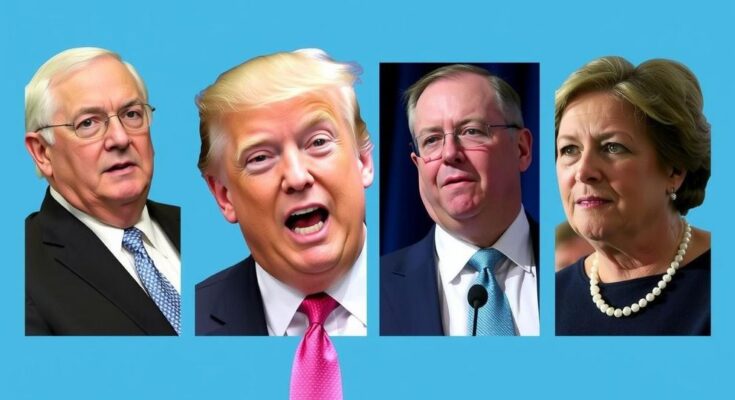Following Donald Trump’s election, a group of prominent Democratic governors is recalibrating their strategies from criticism to collaboration. While aiming to protect progressive values, governors like Phil Murphy and Kathy Hochul express intentions to work on common interests such as infrastructure. Others, like Gavin Newsom, adopt a more confrontational approach, highlighting the varying responses to Trump’s presidency among Democratic leaders.
Following the recent electoral victory of President-elect Donald Trump, several Democratic governors are reassessing their previously combative stances towards his administration. Aiming to establish a collaborative relationship, these leaders intend to balance their party’s desire to counteract Trump’s policies with the necessity of engaging at the federal level. For instance, New Jersey Governor Phil Murphy emphasized the need to find common ground while also standing firm against assaults on core values. Similarly, New York Governor Kathy Hochul has expressed a willingness to work on mutual interests such as infrastructure, despite her disapproval of Trump’s positions on reproductive rights.
Conversely, some governors maintain more confrontational postures. California Governor Gavin Newsom has actively sought to allocate resources for legal challenges against Trump’s administration, articulating a commitment to safeguard California’s progressive laws. Illinois Governor J.B. Pritzker and Colorado Governor Jared Polis formed a coalition focused on defending democratic principles against anticipated threats. Meanwhile, Massachusetts Governor Maura Healey has moderated her tone compared to her previous position as attorney general, expressing a cautious approach to evaluate Trump’s policy initiatives moving forward.
Amid these varying strategies, Michigan Governor Gretchen Whitmer has adopted a wait-and-see approach, acknowledging the importance of shared priorities such as economic development in interpreting a potential Trump administration. The combination of these strategies reflects a complex landscape where Democratic governors navigate the challenges of leadership while adapting to a new political environment.
The article discusses the shift in approach by certain Democratic governors following Donald Trump’s election to the presidency. These leaders, who previously criticized Trump, are now focusing on building constructive relationships to address mutual interests. The analysis highlights the delicate balance these governors must strike between advocating for Democratic values and cooperating with a Republican administration, underscoring the evolving dynamics of political leadership.
In conclusion, the adaptation of several Democratic governors in their approach to President-elect Donald Trump illustrates the complexities of political strategy in a changing landscape. While some maintain a critical stance and seek to protect progressive values, others emphasize collaboration in pursuit of shared goals. This dynamic not only reflects the contentious nature of contemporary American politics but also the necessity of engagement across party lines to effectively address pressing issues.
Original Source: apnews.com




